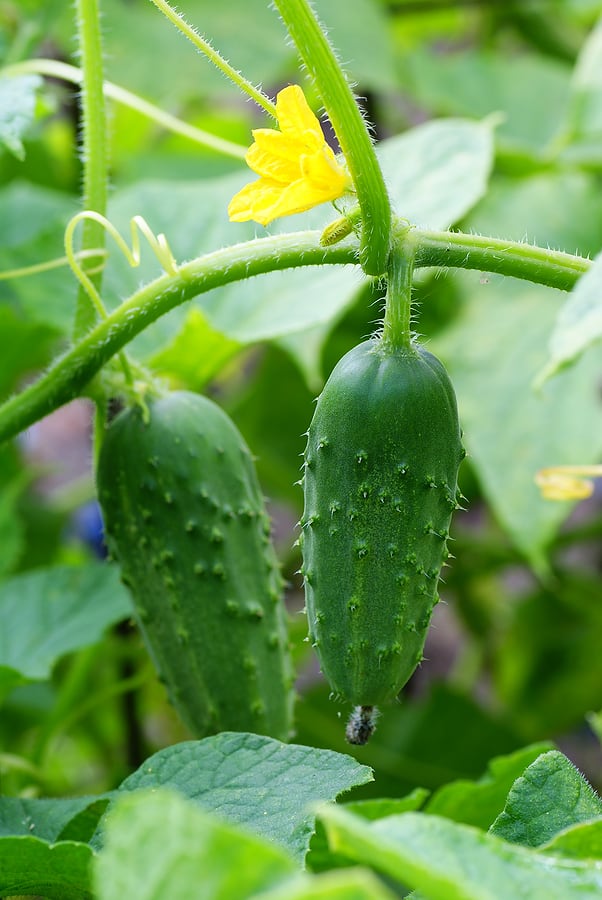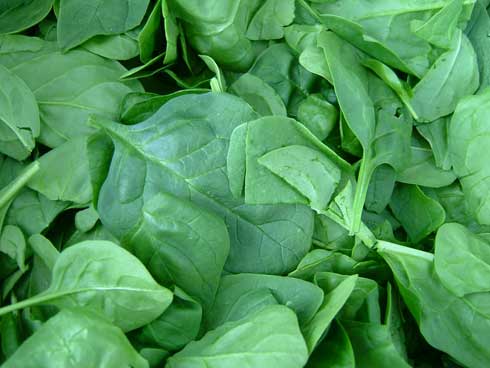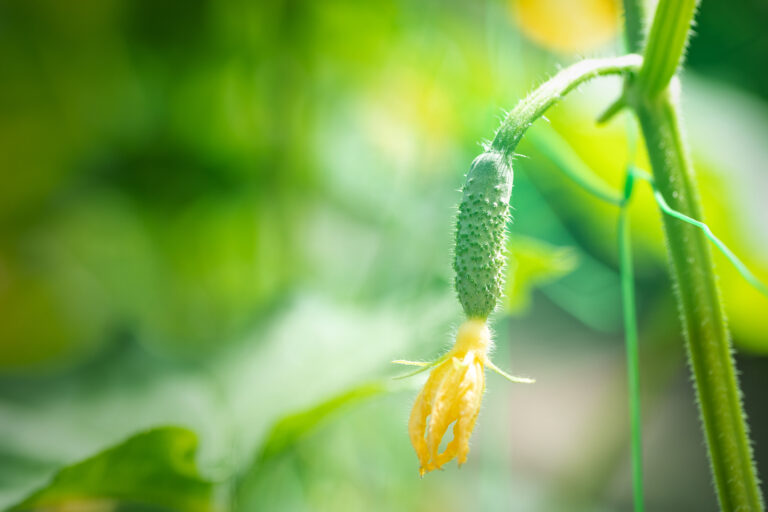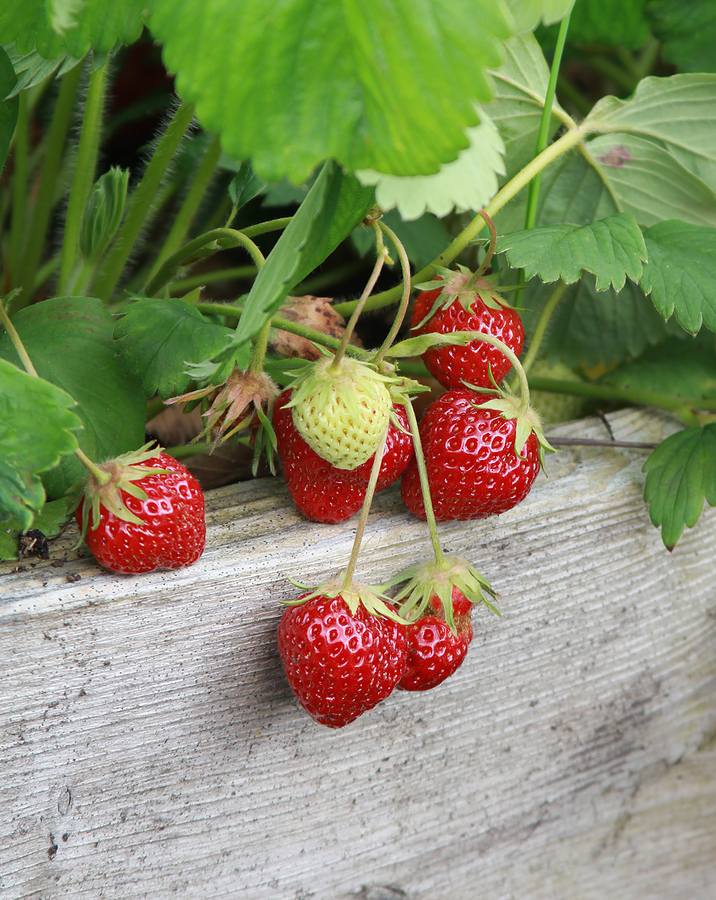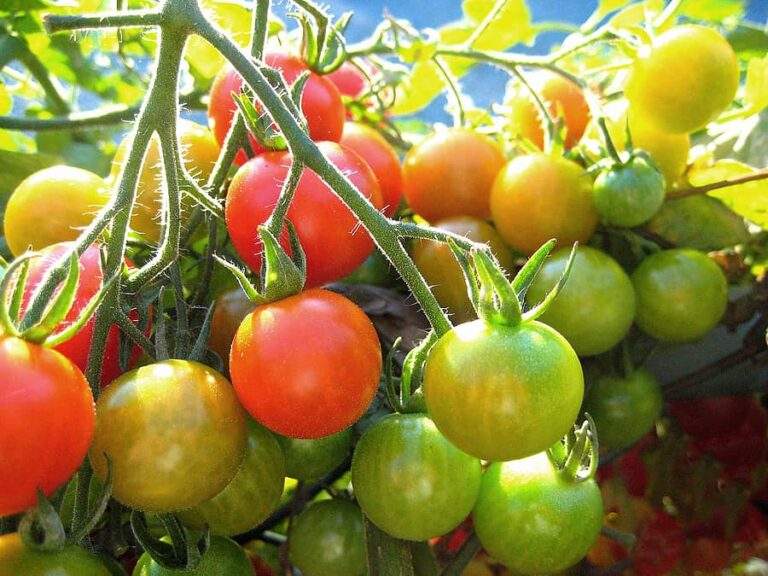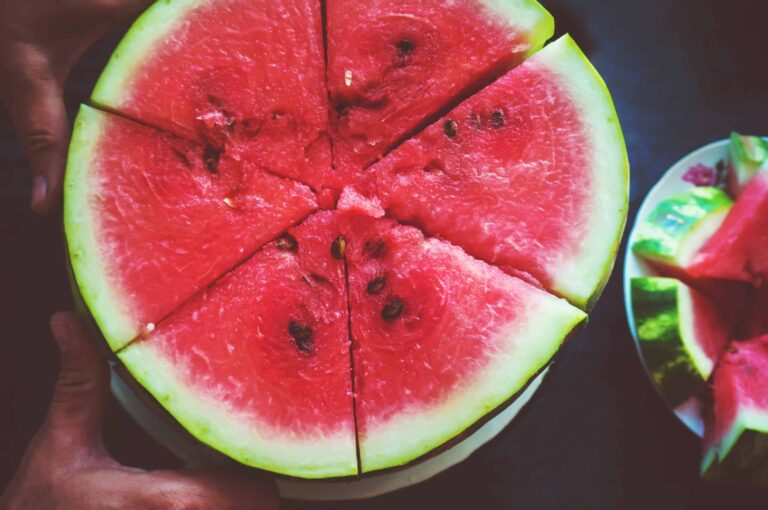When and How to Harvest Cucumbers
Harvesting cucumbers at the right time is key to ensuring they remain crisp and flavorful. From my experience, cucumbers should be harvested when they are bright green, firm, and have reached their ideal size. Slicing cucumbers are best picked when they are 6 to 8 inches (15–20 cm) long, while pickling cucumbers should be harvested when they are 2 to 4 inches long. For larger pickles, allow them to grow to 6 to 7 inches. I’ve found that lemon cucumbers should be harvested just before they turn fully yellow; once they start to yellow, they become overly seedy and lose their flavor. It’s important not to leave cucumbers on the vine too long, as they become overripe, which leads to a dull color, soft texture, and bitter taste. Always check for yellowing at the blossom end, as this is a sign of overripe fruit. In my own gardening practice, I harvest cucumbers early in the morning to ensure they are at their freshest, as they tend to be crisper at cooler temperatures. Proper harvesting not only preserves the best flavor and texture but also encourages the plant to continue producing fresh fruit.
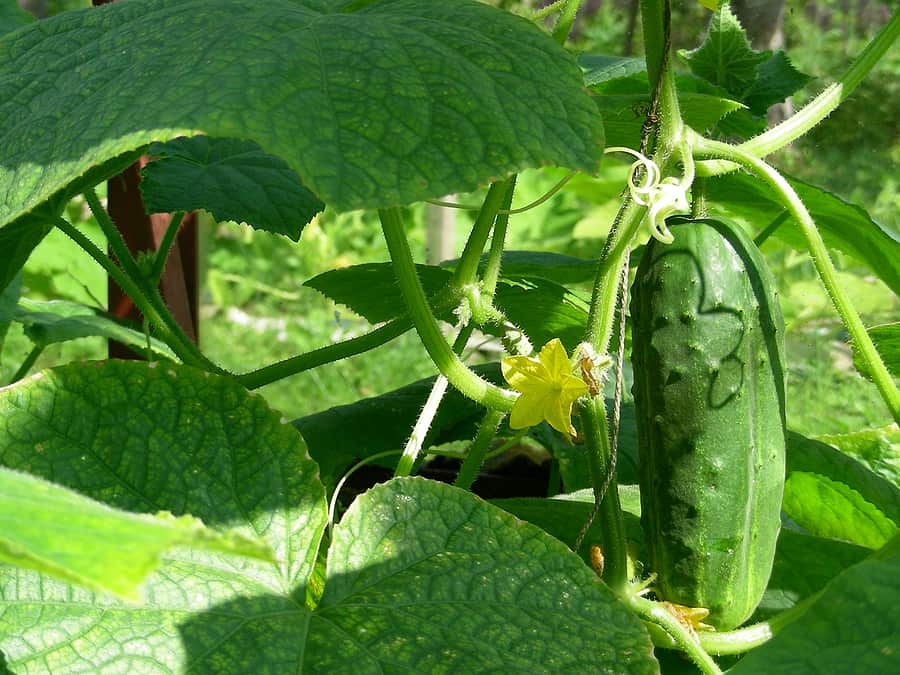
When to Harvest Cucumbers
Cucumbers are ready for harvest usually from midsummer onwards. Harvest cucumbers 3 to 4 times per week as fruit matures; this allows the setting of new flowers and fruit. Harvest when the fruit is elongated and the seeds are still succulent.
Harvest cucumbers when they are green, firm, and moderate in size. Harvest slicing cucumbers when 6-10 inches long, pickling (sweet pr baby dills when 1-6 inches long, regular dills when 3-4 inches long. The best rule is to pick cucumbers as soon as they reach usable size. Cucumbers left on the vine too long will become seedy and bitter. Cucumbers that are dull, puffy, and yellowing are past their prime. A prompt harvest will allow plants to set new fruit. Fruit left to mature on the plant will completely stop the set of new fruit.
Cucumbers are best picked green, firm, and moderate in size–as soon as they are edible and usable size. Home-grown cucumbers should be picked slightly smaller than the size you’d find at the market. Smaller cucumbers will be just as tasty as larger cucumbers.
Cucumbers come to harvest quickly. Six to seven weeks after planting, small cucumbers will begin to form. Pick the first cucumbers small; this will encourage the plants to produce more.
Never allow cucumbers to mature on the plant. If cucumber fruits mature on the vine, the plant will slow or stop production. It is better to pick cucumbers you can’t use and compost them than to allow the fruits to mature. Cucumbers are past their prime when they become dull, puffy, and begin yellowing.
Bitter-tasting cucumbers are the result of either uneven watering (keep the soil always just moist and mulch to slow soil moisture evaporation) or wide fluctuations in temperatures (which you can’t control).
Keep in mind, the first flowers on the cucumber plant are male; female flowers (which produce the cucumbers) follow a week or two after the males. Bees are essential for pollination–carrying the pollen from the male flowers to the female. There will be few cucumbers in gardens where bees are not active.
When to Harvest Checklist
- Cucumbers will be ready for harvest 55 to 65 days from sowing.
- Harvest cucumbers as soon as they reach mature size; cucumbers left on the vine past maturity will suppress the production of new flowers and fruit.
- Check and harvest cucumbers daily to stay ahead of the harvest.
- Slicing cucumbers are best picked when they are 6 to 8 inches (15-20cm) long.
- Clips cucumbers off of plants with a garden clipper, scissors, or knife. Pulling cucumbers off plants can damage plants.
- A fruit that turns yellow at the blossom end opposite the stem is overripe and will be seedy.
- Pickling cucumbers–sweet or dill–are best picked when 1 to 6 inches (2.5-15cm) long. Pick pickling cucumbers every two days.
- Regular dills are best picked when 3 to 4 inches (7-10cm) long.
- Burpless cucumbers should be picked at about 10 inches long.
- Hothouse-grown English or Armenian cucumbers are best picked when 12 to 15 inches (30-38cm) long.
- Cucumbers left on the vine too long will have tough skins and will lose flavor.
How to Harvest Cucumbers
When harvesting cucumbers, it’s important to cut the fruit from the vine using a sharp knife or pruner to avoid damaging the plant. Pulling cucumbers from the vine can harm the brittle tendrils and vines, potentially stunting future growth or causing unnecessary stress to the plant. In my own experience, using clean, sharp tools ensures a clean cut and minimizes any damage to the plant. Additionally, frequent harvesting is key to encouraging the plant to produce more fruit. If cucumbers are left on the vine too long, the plant may slow down its production or stop altogether. By regularly removing mature cucumbers, the plant is prompted to keep producing new fruit, leading to a continuous and abundant harvest throughout the growing season. This routine harvesting not only maximizes your yield but also keeps the plants healthy and productive, providing you with fresh cucumbers for a longer period.
Tips from my experience:
- Cut the fruit from the vine with a knife or pruner. Pulling fruit from the plant may damage brittle vines.
- It is important to harvest cucumbers frequently to keep the plant producing new fruit.
- Pick cucumbers at their optimum size and pick them frequently. Cucumbers should be ready for picking 50 to 70 days after planting. When the cucumber drops its flower at the blossom end of the fruit, the fruit is ready for harvest. Cucumbers are less tasty when they grow too big.
- Know the mature size of the cucumbers you are growing: about 6 to 8 inches (15-20 cm) for American slicers, 4 to 6 inches (10-15 cm) for Middle Eastern types, 3 to 5 (7-13 cm) inches for pickling types; 8 to 12 inches (20-30 cm) for Asian varieties.
Related Posts:
Ultimate Beginner to Expert Guide to Growing Cucumbers
Planning and Planting
- The Best Cucumber Varieties for Your Garden
- How to Plant Cucumber Seeds and Seedlings: Site, Spacing and Soil Needs
- Growing Cucumbers in Containers: Space -Saving Tips for Success
Care and Maintenance
- Watering, Feeding, and Caring for Cucumbers: A Complete Guide
- How and When to Prune Cucumbers for Healthier Vines
- How to Grow Cucumbers That Are Not Bitter Tasting
- Cucumber Flowering, Pollination, and Fruit Formation: Ensuring Maximum Yield
Troubleshooting and Pest Control
Harvest and Beyond
- Nine Cucumber Serving and Cooking Tips
- When and How to Harvest Cucumbers
- How to Store and Preserve Cucumbers for Freshness and Flavor
Garden Planning Books at Amazon:
- Vegetable Garden Almanac & Planner
- Kitchen Garden Grower’s Guide Vegetable Encyclopedia
- Vegetable Garden Grower’s Guide
- Tomato Grower’s Answer Book
More harvest tips:
Learn when and how to harvest your favorite vegetables for the best flavor and texture. Get storage tips for each crop. Click on the vegetable you are growing below.
- Artichoke
- Arugula
- Asparagus
- Beans
- Beets
- Broccoli
- Brussels Sprouts
- Cabbage
- Cantaloupe — Melons
- Carrots
- Cauliflower
- Celery
- Chard
- Collards
- Corn, Sweet
- Cucumbers
- Eggplant
- Endive and Escarole
- Garlic
- Jerusalem Artichoke
- Kale
- Kohlrabi
- Leeks
- Lettuce
- Melons
- Okra
- Onions
- Parsnips
- Peas
- Peppers
- Potatoes
- Pumpkins
- Radicchio
- Rhubarb
- Rutabaga
- Spinach
- Squash, Summer
- Squash, Winter
- Sunchokes
- Sweet Potato
- Swiss Chard
- Tomatillo
- Tomatoes
- Turnips
- Watermelon

